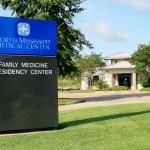
Pharmacy technicians Laurie Diment, CPhT, and Krista Moore, CPhT, examine a patient’s refill request.
NEW HEALTHCARE NEEDS resulting from a growing elderly population, the advent of the Affordable Care Act, and dramatic shifts in how healthcare is now being delivered are opening up new patient care opportunities for pharmacists.
One such opportunity at Kaiser Permanente Northwest (KPNW) is ensuring that patients get the care they need when they need it.
A medication refill protocol instituted at 16 medical offices and specialty clinics, including cardiology, neurology, rheumatology, and OB/GYN, and involving nearly 600 internal medicine and family practice providers, allows pharmacists to address their patients’ drug therapy management needs.
The result? Better patient care, greater efficiencies, increased accuracy, and more time for physicians to spend with their patients.
“With the increasing number of patients who now have access to healthcare, it’s more important than ever to relieve physicians of work that can be done by pharmacists,” said Tabitha Fridriksson, R.Ph., manager of the pharmacy department refill protocol program at KPNW, Vancouver, WA.
Better Care, Rising HEDIS Scores
Created under a collaborative drug therapy agreement stipulating that pharmacists can independently approve prescription refills on behalf of a prescriber, the protocol immediately began returning dividends in terms of patient health.
“Right away, we discovered that pharmacists were also monitoring and following up with patients more consistently than primary care providers for things like blood pressure, lab tests related to the patient’s medication, and any procedures or other tests relevant to their drug therapy,” said Ms. Fridriksson.
In fact, from 2007 (when pharmacy support became an integral part of KPNW’s operational plan), Healthcare Effectiveness Data and Information Set (HEDIS) scores there quickly exceeded scores for other Kaiser Permanente regions in all areas. HEDIS is a tool widely used by health plans to measure patient care performance.
Improvements in HEDIS scores included screenings for cervical cancer (16% increase), breast cancer (17% increase), and chlamydia (54% increase); and medication compliance (15% increase). This is quite an accomplishment considering that the various Kaiser regions consistently score in the top 10 in the nation of all health plans regarding clinical quality HEDIS measures. KPNW is also ranked as the #1 Medicare 5-Star program in the country, which is largely based on HEDIS measures.
“Not only are we improving turnaround times for refills, we also are improving the quality of patient monitoring and enlarging the scope of pharmacist practice,” said Ms. Fridriksson.
Easing Patient Access
Under the protocol, KPNW pharmacists approved an average of 41,000 refills monthly in 2013, which equates to 17 full-time-equivalent physicians and other prescribers and 86,376 office visits annually.
The protocol also alleviated the unintended consequences of a service, begun in 2012, that allows KPNW patients to email their physicians directly. It didn’t go quite as planned.
“They got bombarded by emails, thousands of them, many of which were just refill requests. That wasn’t what we had in mind,” said Ms. Fridriksson. During the first year of the service, physicians received nearly 24,000 medication-related emails; by the third year, the number exceeded 50,000.
“A conscientious physician will do the utmost to look up the details for each patient before they sign off on a refill,” said Sean Jones, M.D., who assisted in crafting the refill authorization and is chair of KPNW’s regional formulary and therapeutics committee. “But with that kind of volume (sometimes I received 50 requests a day), it’s simply not realistic. We realized some patients who were asking for refills hadn’t seen a physician in years.”
It was a perfect set up for pharmacists, who stepped in and now resolve about 75% of the email refill requests.
“The KPNW program truly demonstrates the positive impact pharmacists can have on patient care in an ambulatory, team-based environment,” said Justine Coffey, director of ASHP’s Section of Ambulatory Care Practitioners.
Pharmacist-Physician Partnership
The KPNW protocol, which also allows pharmacists to manage refills for patients taking opioids, means that pharmacists now process three quarters of all opioid refills as well as monitor patients on opioid therapy based on criteria established under the collaborative practice agreement. Part of those criteria includes ensuring that patients undergo required drug screening.
It’s a wonderful collaboration between our pharmacists and other providers to improve the quality of patient care.
Under the program, pharmacist monitoring and resulting interventions have resulted in an 80% improvement in timely clinician action and documentation when urine drug screens turn up unexpected results.
“If the pharmacist sees a concern, like a patient who didn’t get their urine test done, or they did but got unexpected results, they follow up with the patient and also bring it to the physician’s attention,” said Dr. Jones.
“It’s a wonderful collaboration between our pharmacists and other providers to improve the quality of patient care.”
–By Steve Frandzel










 If you want to contribute tutorials, news or other stuff please contact us. We pay 150 for each approved article.
If you want to contribute tutorials, news or other stuff please contact us. We pay 150 for each approved article. Consectetur adipisicing elit. Sed do eiusmod tempor incididunt ut labore.
Consectetur adipisicing elit. Sed do eiusmod tempor incididunt ut labore. This site uses valid HTML and CSS. All content Copyright © 2010 Newscast, Inc
This site uses valid HTML and CSS. All content Copyright © 2010 Newscast, Inc If you like what we do, please don't hestitate and subscribe to our
If you like what we do, please don't hestitate and subscribe to our